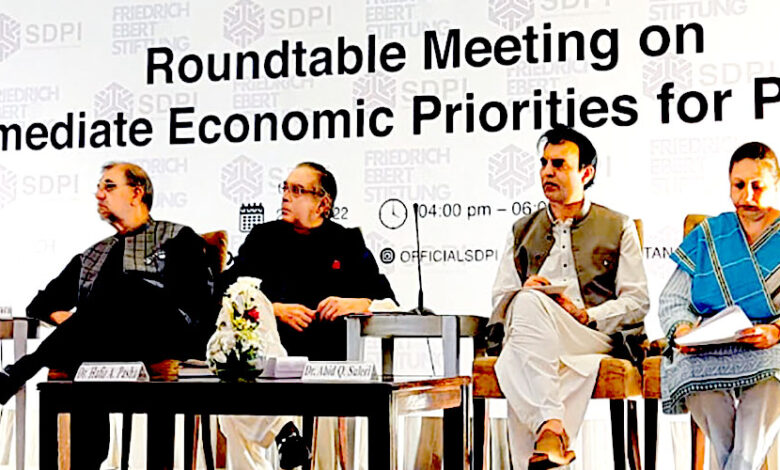Experts urge for comprehensive economic reform approach

ISLAMABAD: Comprehensive economic reform should be the new coalition government’s first priority, former finance minister Dr Hafeez A. Pasha said on Saturday.
“For the first time in our history, we have a government founded on the broad national agreement.” Dr. Pasha said, “An opportunity has presented itself to rectify the economy and rationalize the tax system.” He was speaking at a roundtable discussion titled ‘Pakistan’s Immediate Economic Priorities,‘ which was co-organized by the Sustainable Development Policy Institute (SDPI) and Friedrich Ebert Stiftung (FES).
Dr Pasha said that Pakistan’s current account deficit surpassed $12 billion in the first eight months of the current fiscal year and might reach $19 billion by June 30, 2022. Each year, $30bn to $32bn in funding would be required to handle transactions with the rest of the globe.
“Pakistan was able to secure $18 billion in financing during the first nine months of the current fiscal year, but would need to manage $15 billion to $16 billion in the remaining three months,“ Dr Pasha projected, adding that a $5.5 billion decline in foreign exchange reserves in March 2022 exacerbated the economic woes.
He said that governments should guarantee they are following a thorough reform agenda before engaging in IMF discussions. All indirect taxes on basic food products, like ghee, sugar, spices, vegetables, and tea, should be abolished. This includes ghee, sugar, spices, vegetables, and tea.
Dr Abid Qaiyum Suleri, Executive Director of SDPI, said that after the Covid-19 outbreak, the Russian-Ukrainian conflict produced another worldwide recession and exacerbated the problem of food security.
“The problems that Pakistan is experiencing, particularly with regard to rising inflation,” he said, “are inextricably tied to the global situation.” Dr. Suleri said that Pakistan’s economy could be hurt by political uncertainty for a long time.
On the occasion, economist Ashfaq Tola emphasised the need of reforming Pakistan’s taxes structure. “We must mend the tax system’s fractures. The incoming administration should address tax injustice.“
Dr Aliya Hashmi, who is also an economist, believes that Pakistan should approach the country’s problems from a global rather than a local viewpoint.
Dr Vaqar Ahmed, SDPI’s Joint Executive Director, said that circular debt in the electricity and gas sectors was a significant source to fiscal seepages.





